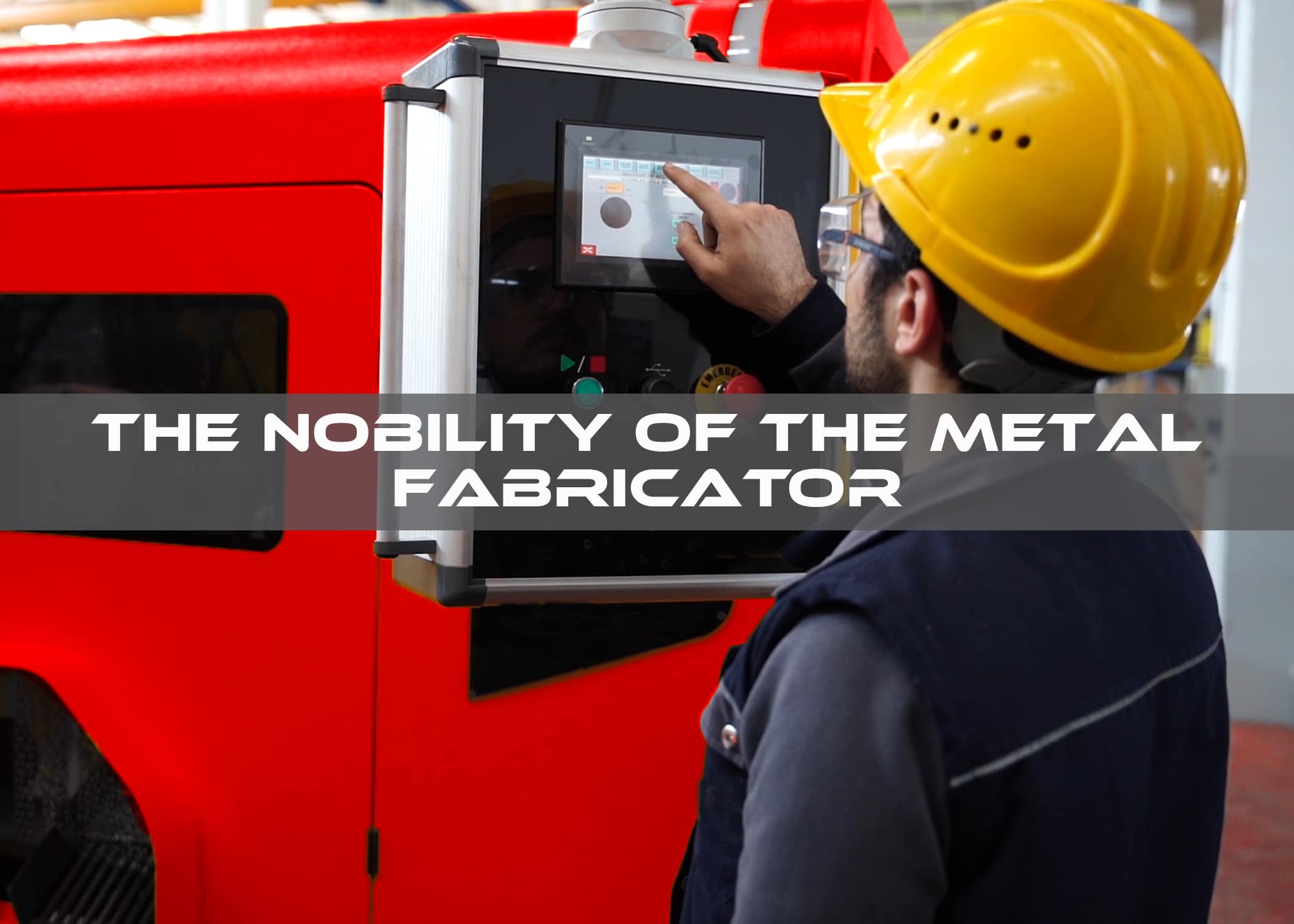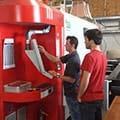A Proud Heritage
“Do you have a few minutes to talk?” the young press brake operator asked as he entered his boss’s office.
“Sure. What’s on your mind?” the fabricator manager replied as he indicated the chair in front of his desk.
Sitting down, the young man said, “Some of my family members don’t approve of my career choice. They say I’m just a laborer doing the grunt work of society, and that I might as well be flipping burgers. It really gets me down sometimes.”
The manager smiled. “Did you point out to them that the average hourly rate for a metal fabricator in the United States is about double the average for someone working in the fast-food industry?”
“I told them that I was making good money with great benefits and was continuing to learn a variety of new skills, but I’m not sure that I made any headway with them,” the operator said. “I think it’s because I had an uncle who was a welder, and they often say that he was always ‘dirty and drunk.’”
“It’s sad when people develop pointless stereotypes about metalworkers,” the boss responded. “Some people think that it’s unsafe work—something that really hasn’t been the case since the early 1970s when OSHA standards began to be enforced. Others will call it a ‘low-tech’ industry, which is seldom the case these days. You, yourself, write programs on a computer screen to create precise, intricate folds in metal.”
“My sister says that I should do something that contributes to society, even if it was just being an artist,” the young man continued, adding quickly, “and yes, before you ask, I showed her photos of that custom sign install that I helped design. She didn’t seem impressed.”
The manager thought quietly for a moment, then replied, “I’m not sure what to tell you. You’ll never be able to live up to everyone’s expectations. The only thing you can do is to make sure that you feel a sense of accomplishment in whatever you set out to do. Hopefully they will be able to see that in your life and appreciate just how important it is to you.”
The manager then scowled slightly. “As far as contributing to society,” he continued, “metal fabricators have a very important and even noble profession. Fabricators take a piece of metal and then with the tools at hand shape it into solutions for everyday problems. Need a spoon? It’s fabricated. A metal drum to store food or fuel? Again, fabricated. From surgical steel to railroad ties, metal is fabricated into things that are necessary for society to flourish.”
“I guess you’re right,” the press brake operator agreed.
Lunch atop a Skyscraper
“I’m always amazed whenever I reflect on some of the massive projects that metalworkers have been responsible for over the last couple of centuries,” the manager said, “especially here in the United States. The scale of some of these creations is just staggering, such as the Empire State Building or the Brooklyn Bridge.”
Rotating in his chair, the manager gestured to an image prominently on display and said, “The legacy of the American metalworker is one of the reasons I keep this photo on my wall. It’s called ‘Lunch atop a Skyscraper.’”
Looking at the old black and white photo of 11 men sitting along a girder eating their lunches, apparently suspended high above a sprawling cityscape, the younger man asked, “But they aren’t even fabricators, right? Just actors or models they hired to pose for that picture, with some sort of doctored background?”
The manager solemnly shook his head. “While the photo was certainly staged as part of a publicity stunt, the setting is real. The photo was taken in the early 1930s in New York City during the construction of what was then called the RCA Building and is now known as 30 Rockefeller Plaza. They are actual ironworkers who worked on the construction of that skyscraper and are sitting over 800 feet above the ground.”
The press brake operator, who had done some rock climbing in his day and didn’t consider himself to be fearful of heights, felt a slight twinge of acrophobia as he gazed more intently at the photo, a look of wonder appearing on his face.
“I had no idea,” he said.
“The Great Depression was in full swing,” the manager continued, “and these men, all immigrants, daily braved deadly conditions to earn enough to put food on their tables and keep roofs over their heads. They may not have fully realized it at the time, but each of them was plying his craft to build monuments to the engineering genius of mankind.”
The Privilege of Fabrication
“That’s a lot to think about,” said the young man. “Thanks.”
“No problem,” replied the boss. “Just remember that what you do is hard work, and while it might seem like thankless labor at times, it’s very necessary that there are fabricators like yourself who are willing to step up and do it. Half a century ago about 20% of the private workforce in the U.S. worked in manufacturing, now it’s about 8%, even though there are enough unfulfilled manufacturing jobs to employ hundreds of thousands of additional people.
“Those men on the skyscraper understood that work is a privilege, not a chore. Metal fabrication is a skilled profession that takes a special sort of dedication. It’s a trade to be proud of—a craft that you should always be glad that you get to do.”
As they parted company, a smile crossed the young operator’s face as he thought about just how fortunate he was to be trained as a fabricator, and to be able to work on all the important and fulfilling projects that he did.







